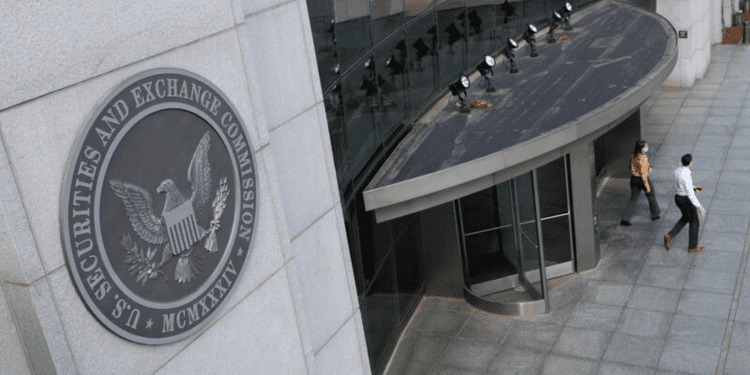The Securities and Exchange Commission (“SEC”) recently announced that it is setting up two new offices to handle asset filings, one of which is the Office of Crypto Assets. These offices are to be added to the Division of Corporation Finance’s Disclosure Review Program (“DRP”). Due to the growth and intensity in specific industries, this move was necessary to keep up with increased filings—mainly as they apply to crypto assets and other filings.
The SEC’s Two New Offices
The SEC is adding new offices to handle corporate disclosure filings. These offices are the (1) the Office of Crypto Assets and (2) the Office of Industrial Applications and Services.
These offices will join the seven other already-existing SEC offices. Regarding the additions to the SEC, Division of Corporation Finance Renee Jones stated,
As a result of recent growth in the crypto asset and the life sciences industries, we saw a need to provide more significant and specialized support.
The Office of Crypto Assets will be reviewing crypto asset filings. Assigning the responsibility of the filing to one office will help the DRP “better focus its resources and expertise to address the unique and evolving filing review issues related to crypto assets.”
The Office of Industrial Applications and Services will be responsible for “the non-pharma, non-biotech, and non-medicinal products companies currently assigned to the Office of Life Sciences.” This industry is growing significantly and has contributed to the steady increase in filings. Adding a separate office for this industry and function will “allow the DRP staff to better build specialized expertise in this space.”
Reasons for the Creation of these New Offices
There are many reasons for these additional offices. As a starting point, it is well agreed that cryptocurrencies have spiked in popularity and acceptance. Naturally, the crypto industry has gotten tangled up in regulatory issues and violations. The SEC and other federal agencies have found it challenging to keep up with this industry.
In addition, money laundering has been increasing with the popularity of crypto. So too, has consumer data violations. As a result, consumers are hesitant to release innovative projects or fully immerse themselves in crypto. Regulatory clarity and knowledge are needed.
These offices strive to streamline the review and handling of these issues. Both offices aim to come into operation in the Fall. Renee Jones expects that the introduction of these offices with assisting the SEC in protecting consumers and fostering capital formation in the crypto and life sciences industries.
Director of the Division of Corporation Finance Renee Jones also noted,
The creation of these new offices will enable the DRP to enhance its focus on crypto assets, financial institutions, life sciences, and industrial applications and services and facilitate our ability to meet our mission.
The SEC’s Continued Position on Digital Assets
It is important to note that adding an office to focus on crypto filings does not change the SEC’s view that crypto firms should be registering with it. SEC Chairman Gary Gensler recently remarked that crypto firms must comply with the SEC and write their crypto projects. Gensler added,
The investing public benefits when they receive disclosures and related protections about a project’s prospects and business. The investing public benefits when intermediaries are registered and overseen.
As further evidence of the SEC’s hard stance on crypto, the SEC’s Division of Enforcement increased the “staff strength” of its Crypto Assets and Cyber Unit by almost double. This decision was made due to the growing concerns about fraud in the crypto industry and the increased need to protect investors and the public from such fraud.
Specifically, the SEC has allocated 20 additional positions to the unit responsible for protecting investors against crypto-threats—growing to “50 dedicated positions.”
The new unit focuses on the following:
- Crypto asset offerings
- Crypto asset exchanges
- Crypto asset lending and staking products
- Decentralized finance (“DeFi”) platforms
- Non-fungible tokens (“NFTs”)
- Stablecoins
Conclusion
The SEC’s new Office of Crypto Assets will focus on filings made in the crypto industry. This office was introduced in conjunction with a second office called the Office of Industrial Applications and Services. The SEC has decided to better protect investors and the public against increased fraud risks.












